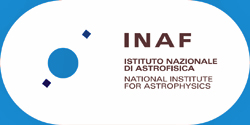In the next decade, the commissioning of Extremely Large Telescopes (20-30m class) will allow us to see the
high redshift universe through new eyes of unprecedented power. These new eyes will have the potential to transform
our understanding of the formation and early evolution of galaxies and black holes, first light and cosmic reionization,
as well as the evolution of the intergalactic and circumgalactic media, by themselves or in combination with other
planned facilities.
For other conferences in this series, please go to:
This series of conferences, Extremely Big Eyes on the Early Universe, will bring together an international group of experts to review the current state of the
art in the study of the high redshift universe and discuss how best to use giant telescopes to learn about it. Specifically,
we aim to address the following questions:
- • What potentially transformative observations will be enabled by giant telescopes? What capabilities are required?
- • What are the key synergies between giant telescopes and other facilities? What are the areas and topics where a concerted
effort will yield far superior results than the sum of all parts?
- • What theoretical or observational work is needed in preparation for first light? What are the limitations in our understanding
that need to be overcome?
- • What calculations are required in order to make testable predictions and interpret the results of future astronomical
observations?
It is extremely important to answer these questions now, while the plans for giant telescopes can still be influenced, and
there is still sufficient time to carry out preparatory theoretical and observational work that will be needed to make the most
of these investments. In order to facilitate attendance and reduce travel costs we will hold three coordinated conferences, once
each in Asia, America and Europe.
Sponsors







